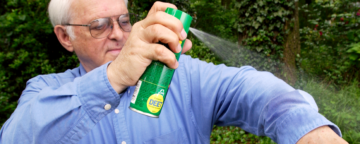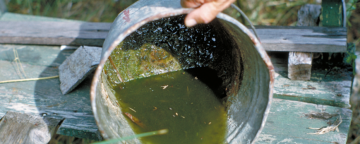A new mandatory food-labeling law allows food producers to use digital codes to inform consumers that food contains genetically modified (GM) ingredients. But will consumers use smartphones or in-store readers to scan those QR codes?


Michael Rozansky has worked as an editor, writer and reporter for 30 years. Before joining the Annenberg Public Policy Center as director of communications, he spent more than 20 years at the Philadelphia Inquirer, most recently supervising its arts and entertainment coverage. He has reported on the arts, media, business, politics, national and regulatory issues. Rozansky also developed and taught a class at Temple University on the history and practice of celebrity journalism. He received a bachelor’s degree in English and American literature from Brown University and a master’s degree in journalism from Columbia University’s Graduate School of Journalism.

A new mandatory food-labeling law allows food producers to use digital codes to inform consumers that food contains genetically modified (GM) ingredients. But will consumers use smartphones or in-store readers to scan those QR codes?

Although most Americans are familiar with news reports about Zika virus, more than three-quarters of them say they haven’t done anything in the last three months to protect themselves from getting infected, a new APPC survey found.

APPC director Kathleen Hall Jamieson addressed the annual meeting of the Midwestern Legislative Conference, in Milwaukee, on "Effective Communication in a Polarized Environment."

There's widespread support for labeling genetically modified foods, as required in a new bill President Obama is expected to sign. But most Americans don't know that scientists have found no substantiated evidence to show that genetically modified foods are unsafe.

What do citizens want from their member of Congress? The answer, a new study finds, is partisan representation on national issues, which is more highly valued today than constituency service or bringing in federal money to a congressional district.

As some athletes say that they are pulling out of the summer Olympic Games in Brazil because of concerns about Zika virus, most Americans favor the idea that the Games should be cancelled, postponed or moved to another country.

Just 1 in 5 people say that they have taken steps in the past three months to protect themselves from getting Zika virus, according to a new survey from the Annenberg Public Policy Center.

The National Institute on Drug Abuse has highlighted research on teens and substance abuse by Annenberg Public Policy Center's distinguished research fellow Atika Khurana and its research director, Dan Romer.

APPC researchers, postdoctoral fellows and scholars presented papers at the 71st annual conference of the American Association for Public Opinion Research, in Austin, Texas.

A majority of people in the U.S. said that they would be likely to get a vaccine to protect them against Zika virus if it were available, according to the latest APPC survey, No vaccine exists yet.